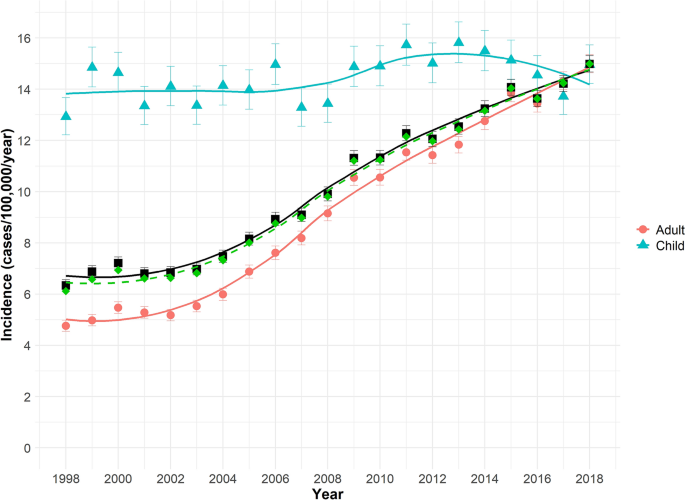When a dog kills someone it is generally confiscated and destroyed, it's not just a "raging ball of fur and teeth" only seen for a brief moment and again 2/3rds of recent fatalities (since 2020) have involved "pit bulls" in the US sense of the word.
Oh, so when you or any other average human are having your arm or your face chewed off, you're able to positively identify exact breed? Even in light of those '10 commonly misidentified as pit bull' breeds mentioned earlier, you're absolutely certain?
Assuming you're using UK statistics, the highest annual count of dog-attack fatalities I could find was 9 deaths in 2022... so that's a grand total of
six cases that looked roughly like some kind of pit-bull.
In all the years going back to 1981, the highest count in any one year was 6, the mean average fatality count between ONS and DEFRA records was 1.9 per year. The highest single source average was 2.1.
81% of these fatalities occured at home too, so the earlier worry about dangerous dogs being on 'the streets' is even less of a concern.
To put that in perspective, cows kill an average of
6.2 walkers and ramblers per year.
When are we going to ban
these bloodthirsty bovine beasts??!!
We don't have to eat meat, as there are plenty of alternatives nowadays, and humans have not yet properly evolved to consume milk products as evidenced by the 65% lactose intolerant world population. Cows bring nothing else to the table, while their farming has massive impacts on the environment.
They have no reason to exist.
Heck, more people die from falling out of trees each year than from dog attacks.
Other studies go further into examining the media's recent bleating headline assertions that dog fatalities are massively increasing, but found (to their seeming disappointment) that there was no such trend.
Not that it will get read, but:
As with the US stats they're a clear outlier, you'll need a better argument than ackchually sometimes they're misidentified to try and explain away those.
James McNally, dubbed Britain's 'dog bite solicitor' and a personal injury claim expert with Slee Blackwell Solicitors, has said he's seen a rise in the number of dog bite claims in recent years.
Mr McNally said: 'Some of the worst injuries we're seeing are by those beloved household pets; Collies, Jack Russells, Huskies"...
"Licences don’t necessarily, by themselves, solve the problem. They don’t necessarily do anything about the behavioural issues"
"We looked at a whole load of literature around dog attacks, held some focus groups, spoke to veterinary professionals, police officers, enforcers in local authorities, and animal behaviour specialists. The main thing that came back was that most of the attacks are probably preventable"
"If you have a dog, and the dog is out of control, it’s not just down to the dog – it’s down to how you relate to the dog."
Angus Nurse, head of criminology and criminal justice at Nottingham Trent University
"Most bites – more than 80% – occur at home, by a dog known to the victim. That’s one of the difficulties – a lot of what’s going on is happening behind closed doors, so to try and understand exactly what was preceding the bite is difficult. It also means the true figure for dog bites is likely to be far higher than the hospital admissions we know about. Below that, you’ve got A&E and minor injury unit attendance, and we don’t know that figure. And then there’s going to be a whole bunch of other people that have been bitten by dogs that will treat themselves"
"With the hospital records, we don’t have any breed information. If we look at other countries where work has been done on that, no country has found that one breed of dog is more likely to cause bites than others"
Dr. John Tulloch, a vet and epidemiologist at the University of Liverpool, who researches dog-related injuries and deaths.
Tulloch has his own studies, but since he's another who advises against breed-specific legislation and instead focusses on humans doing a better job of keeping their dogs, he's probably not worth reading:
Dog bites are a global health issue that can lead to severe health outcomes. This study aims to describe the incidence and sociodemographics of patients admitted to English National Health Service (NHS) hospitals for dog bites (1998–2018), and to estimate their annual direct health care costs...

www.nature.com
The walkers said the owner has recently found out she's pregnant and the dog has changed since then. Also it's 18 months old so possibly maturing in to Adulthood (It's been 'done' though).
It's a well-known behavioural trait in dogs. A lot of dog sites discuss it, as well as a good number of human pregnancy books.
Dogs are creatures of habit, trained and comforted by routine. When that changes it can upset them and their behaviour alters as they try to recalibrate and figure out what to do.
'Dogs have the ability to sniff out changes in the human body, and many have developed impressive skill in detecting cancer, diabetes, and other health conditions in humans. During pregnancy, your hormones shift and are released in different patterns and quantities, and these changes are sure to be noticed by your dog. Every dog reacts differently to their pregnant owner, some become protective, others more aloof, and others may even seem apathetic. Sensing vulnerability, they may become your bodyguard, following closely and even keeping others at a distance.'






